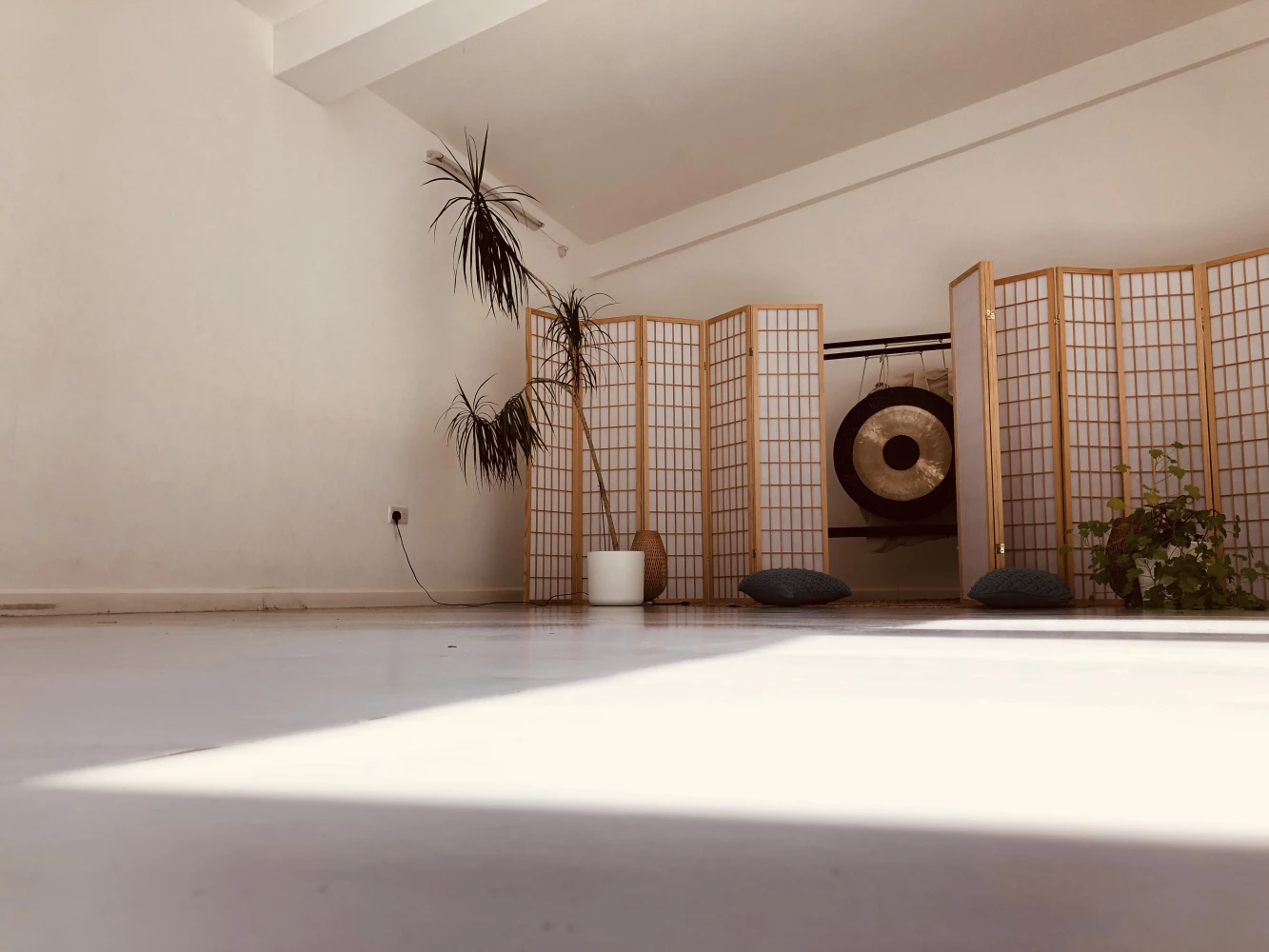This website uses cookies in order to enhance the overall user experience.
Wellness Focus: Food & You
The Well Garden is an oasis of calm based at Hackney Downs Studios. The studio is home to an integrative programme offered by specialist practitioners to help you adopt a more holistic & healthy lifestyle. They offer a peaceful, clear and quiet space for talking, healing, discovery and recovery.

We wanted to delve into nutrition and look for realistic, simple ways to nourish our bodies that fits in with our busy lifestyles. We spoke to Eliza Khinsoe and Melanie Salisbury, both registered nutritionists from The Well Garden to educate us with some innovative and surprisingly simple ways to build a joyful relationship with food.
First of all, can you tell us a bit about yourselves and your practice?
Eliza: "I’m a fat, queer, mixed race woman, a Registered Dietitian and a pastry chef (at the Brunswick East Bakehouse at Hackney Downs Studios!). Through my clinical work, I specialise in disordered eating and body liberation, and support all types of people in navigating their relationships with food, their bodies and the world around them. I approach all the work I do with a radical feminist perspective, which to me means embodying compassion, curiosity, respect and care, and seeking to understand our lived experiences under the context of power, oppression & social justice. Working with individuals, groups and communities, I practice with a body affirming, trauma informed approach; prioritising my clients’ unique experience and values, empowering them to care for themselves in a genuine and meaningful way, to help folks find a joyful relationship with food and their body."

Melanie: "I am a lifelong coeliac and gut health obsessive! I began experimenting with ingredients from an early age when ‘alternative gluten-free foods’ scarcely existed on the shelves, and research on gluten intolerance was in early development. This gave me a solid foundation in the awareness of the impact of what we put in our mouths. A creative passion for colour, variety, diverse cultural influences and bringing people together to eat kept growing and led me to work in specialised cooking and recipe development. I take a whole mind and body approach with every patient I see. Every individual is different, with their own experiences, relationships with food; family, work, healthcare and indeed our physical and psychological responses."

How important is nourishing yourself for your wellbeing?
"Nourishment takes many forms and extends beyond the food we eat. It also includes sleep, stress management, movement, social wellbeing and loads of other practices that form the fabric of our lives. Through these winter months, this might look like adopting a slower pace; more sleep, warming seasonal foods, walking with friends and soaking up the vitamin D from the sun when it does come out! Nourishment takes on different roles through the changing seasons and looks different for everyone depending on individual experience, but at its core is about meeting your mind and body’s needs. Building mindfulness and approaching nourishment with a holistic and flexible view of these needs can help support our wellbeing throughout whatever life throws at us!"
How would you first go about adopting healthy habits?
"Before making any decisions, it’s important to check in on yourself and identify which part of your life needs a little nourishment, as this will help make any changes impactful and sustainable. You might like to take a moment to reflect on what’s important to you; try to tap into your core personal values and consider how your lifestyle can reflect and support these intentions. Don’t be tempted by fad diets, cleanses, etc. It is important to seek guidance from a professional before embarking on a ‘quick fix’ you may have read about or seen online to make sure it’s appropriate for you. Our bodies are really good at sending us signals when something’s not quite right, but rarely do we take the time to listen to what they’re saying. Seeking guidance from a nutrition professional can help us interpret these signals, and respond to them in a compassionate way to build meaningful positive change."
Any guidance on foods for winter?
"On the topic of listening to our bodys’ signals, winter is a great time to practice tuning in, paying attention and experimenting with what satisfies and nourishes us. It’s always vital to make sure you’re eating enough, giving yourself permission to eat to satisfaction and not restricting food groups unless it’s absolutely necessary.
In winter, we recommend thinking seasonal and slow: warming nutrient dense stews and soups, simple to prepare but abundant in vitamins and minerals! Add herbs and spices generously to support your immune system and gut health - parsley grows through winter, a wonderful herb in modulating inflammation and supporting your liver; rosemary is known to help improve focus and concentration, turmeric, ginger and black pepper all support your immune system function and add loads of flavour!
It’s also good to remember your ‘good unprocessed fats’ daily to help protect your nervous system and to nourish your skin from the inside out. These include Omega 3’s found in oily fish, walnuts, flaxseeds, hemp and olive oil. Fatty acids found in coconut oil, eggs, avocados are also necessary in maintaining optimum energy levels!"
Any advice on how healthy habits can take you beyond just winter?
"It is so important to stay in tune with your body and mind as much as you can. This relationship with yourself really does support you in maintaining positive habits throughout your life, but we recognise that keeping up new habits can be extremely challenging. At this time of year, every year, new goals get set. Often you reap benefits short term and understand by the internal positive feedback you get that this really is worth doing. It is not always possible to keep up however, as we come up against life's challenges. Use this time now to slow down, embrace the shorter days and cosier evenings; create mindful habits and rituals to set yourself up in the long term. Some of us are so far from feeling ‘really well’ that we can feel helpless when wanting to make changes. But behaviour change takes time, so be patient and gentle with yourself, and don’t be afraid to ask for help!"
Any insight you can offer through your knowledge and expertise more generally?
Melanie: "Try to stop and ground yourself each day. Take time out to eat, breathe, chew, taste and digest. This is vital for our mental well-being and indeed our physical ability to digest food in the way we have evolved to. Food preparation with all its smells and investigations is necessary to allow our digestive system to get ready for the processing and absorbing essential nutrients. It has become too easy to disconnect from food and its surrounding rituals when demands and stresses often remain high on a daily basis. Many gut imbalances can be resolved through reconnecting with food traditions, recognising the need to make time to eat and having an awareness of our body’s reactions. Nutritional Therapy is not solely about food. It is Lifestyle Medicine."
Eliza: "Food is so much more than nutrients! It can be tempting to try and ‘fix’ our problems by changing up the way we eat, but this can be really restrictive and often just adds to the stress we are under. Instead, try to ditch reductive, judgemental thinking, offer yourself some compassion, trust your body and recognise the broader role of food in your life. Of course it sustains us physically, but food nourishes us in so many other ways too; it brings people together, connects us to the land we live on, upholds cultural traditions and makes for a great vessel of pleasure, comfort and joy. Eating is a fundamental part of self care, and one of the best ways it can serve this purpose is to connect with our bodies, build awareness and attunement to find ways of eating that feel good!"
If you would like to learn more, please refer to the below pages where you can discover the programmes:

